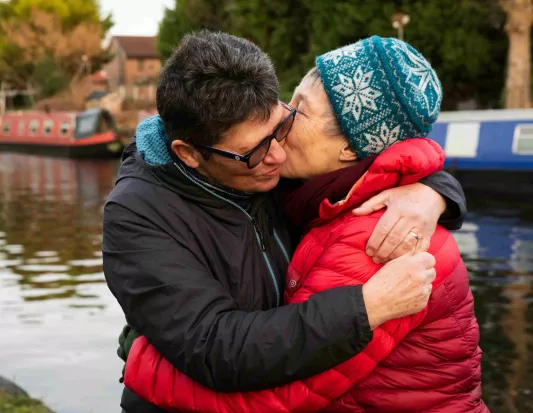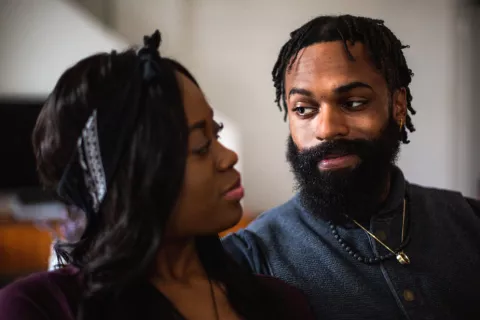Renting
If the tenancy is in only one person’s name and you split up the person not named on the tenancy will usually have no right to stay if their partner asks them to leave. Bear this in mind if and when you are starting a new tenancy. If you're renting a new place together, think about putting both names on the tenancy. The kind of tenancy you have and whether your landlord is the local council, a housing association or a private landlord all affect your housing rights.
A home you or your partner owns
If the home is owned in one person’s name and there is no other agreement in place, the unnamed partner may have no right to stay if they are asked to leave or if their partner dies. They may be able to prove that they should own part of the home but to do this you would need legal advice and you might need to apply to court. This area of law is complicated and that means it becomes expensive and drawn out very quickly. Our guide on home ownership for people who live together but are not married has more useful information on this.
If you're buying a new place together, or moving into a home your partner already owns, think carefully about how you want to own it. Decisions about who owns the home and how you own it, if you own it together, will make a massive difference to your rights. Our guide about living together when one or both of you own your home will help you make an informed decision.
Whether you own your home together or not, it is important to agree what will happen if you do break up. This is not always easy to think or talk about. Use our guide on making a cohabitation or living together agreement to help you have this conversation and make decisions as a couple about the future.
It is important to understand the difference between legally owning a home, by yourself or with someone else, and just having your name on the mortgage. If you have your name on the mortgage it means you are responsible for paying the monthly repayments. It doesn’t automatically mean you own the home. You have to have your name on the title of the property at the Land Registry to legally own the home. Our guide about home ownership when you live together explains more about this.







